
Cambridge Healthtech Institute’s Fourth Annual
Companion and Complementary Diagnostics in Immuno-Oncology
Predicting and Monitoring Response to Cancer Immunotherapy
August 22-23, 2018 | Grand Hyatt Washington | Washington, DC
Cancer immunotherapy, a rapidly developing field of oncology, is in urgent need of predictive biomarkers to guide patient selection in clinical trials and healthcare settings. Challenges in discovering predictive biomarkers for cancer immunotherapy involve multiple cell types, multiple mechanisms of T-cell regulation, genetic heterogeneity of tumors, immune components, etc. Some of the genomics biomarkers, such as MSI and TMB, made their way to clinic during the last two years, which was associated with significant regulatory and commercialization difficulties. Cambridge Healthtech Institute’s Fourth Annual Companion and Complementary Diagnostics in Immuno-Oncology is designed to bring together clinical immuno-oncologists, researchers from pharmaceutical and biotech companies, and members of the laboratory medicine community to discuss challenges and solutions for bringing on the market and implementing robust and cost-effective companion and complementary assays to improve patient outcomes.
Final Agenda
WEDNESDAY, AUGUST 22
7:45 am Registration and Morning Coffee (Independence Foyer)
8:25 Chairperson’s Opening Remarks
Tricia A. Bal, MD, MBA, Oncology Biomarkers and Diagnostics Leader, Director, Oncology Global Medical Affairs, Merck
8:30 KEYNOTE PRESENTATION: Clinical Genomic Profiling Using the MSK-IMPACT™ Large Panel NGS Assay to Guide Patient Selection for Targeted and Immune Therapies
 Marc Ladanyi, MD, William J. Ruane Chair in Molecular Oncology, Molecular Diagnostics Service and Human Oncology & Pathogenesis Program, Memorial Sloan Kettering Cancer Center
Marc Ladanyi, MD, William J. Ruane Chair in Molecular Oncology, Molecular Diagnostics Service and Human Oncology & Pathogenesis Program, Memorial Sloan Kettering Cancer Center
As the centerpiece of an institutional initiative in clinical cancer genomics, we have implemented large scale genomic profiling for targetable cancer drivers and other cancer-relevant alterations in all patients with advanced solid cancers. Since 2014, over 23,000 patients have been profiled using the MSK-IMPACT™ targeted large panel, capture-based DNAseq assay. MSK-IMPACT™, which received FDA clearance in 2017, allows robust detection of somatic mutations in all known cancer genes, copy number changes and select cancer fusion gene rearrangements, as well as assessing overall tumor mutation burden and microsatellite instability. Patients are also screened for oncogenic fusions by targeted RNAseq and for germline cancer predisposition alleles and evidence of clonal hematopoiesis.
9:00 In the Era of Immuno-Oncology, Diagnostics as Strategic Enablers
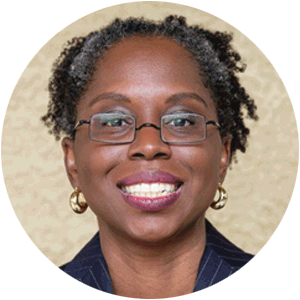 Tricia A. Bal, MD, MBA, Oncology Biomarkers and Diagnostics Leader, Director, Oncology Global Medical Affairs, Merck
Tricia A. Bal, MD, MBA, Oncology Biomarkers and Diagnostics Leader, Director, Oncology Global Medical Affairs, Merck
Diagnostics play a vital role for the identification of patients who will derive optimal therapeutic benefit from a therapy. This talk will focus on some of the more recent biomarker and diagnostic approaches that are being utilized to select patients who are most likely to receive optimal therapeutic benefit from immuno-oncology drugs.
9:30 Policy Opportunities for Accelerating Immuno-Oncology
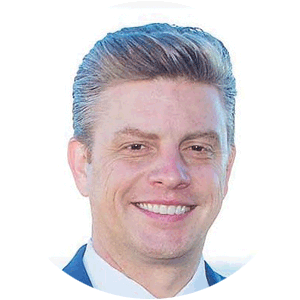 Jeff Allen, PhD, President, CEO, Friends of Cancer Research
Jeff Allen, PhD, President, CEO, Friends of Cancer Research
This presentation will discuss several key policy opportunities in I-O that include use of novel trial designs (i.e., master protocols) and endpoints to assess early signs of efficacy, the need for rationale drug combinations, and development and standardization of novel biomarkers.
10:00 NGS Solutions for Immuno-Oncology
 Pamela Bradley, PhD, Associate Director, Translational Science and Diagnostics, Personal Genome Diagnostics
Pamela Bradley, PhD, Associate Director, Translational Science and Diagnostics, Personal Genome Diagnostics
The low response rate in unselected patients treated with immunotherapy highlights the need for IVDs to accurately predict patient response. This talk will highlight the Personal Genome Diagnostics (PGDx) approach to the development of immuno-genomic assays that accurately predict tumor mutational burden, determine microsatellite status and identify a range of mutations in genes involved in immune signaling.
10:30 Coffee Break in the Exhibit Hall with Poster Viewing (Independence Ballroom)
11:15 The First Biomarker-Defined Tumor Indication: FDA Approval of Pembrolizumab For MSI-high Cancer
 Kenneth Emancipator, MD, Executive Medical Director and Head of Companion Diagnostics, Translational Medicine, Merck
Kenneth Emancipator, MD, Executive Medical Director and Head of Companion Diagnostics, Translational Medicine, Merck
The program presents an overview of microsatellite instability (MSI) and mismatch repair defect (MMRD), and how it fits into the tumor immunogenicity-inflammation pathway. It reviews the history and clinical evidence for MSI and MMRD as a predictive biomarker for response to pembrolizumab. It discusses the unprecedented – and unorthodox – path to FDA approval of pembrolizumab. Finally, it discusses MSI and MMRD in the broader context of biomarkers in immuno-oncology.
11:45 pm Regulatory Challenges for Emerging Diagnostics in Immuno-Oncology
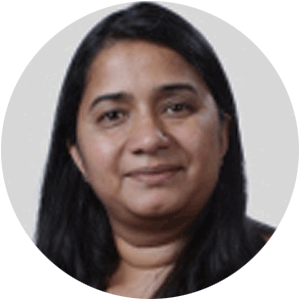 Janaki Veeraraghavan, PhD, Senior Staff Fellow, FDA
Janaki Veeraraghavan, PhD, Senior Staff Fellow, FDA
As newer predictive biomarkers with potential to be diagnostics are identified, this talk will focus on the lessons learned in regulatory review of the first generation companion and complementary diagnostics and the challenges to be addressed as newer generation of diagnostics are developed.
12:15PANEL DISCUSSION: Science and Policy Meet to Advance Patient Selection in IO
Moderator: Kenneth Emancipator, MD, Executive Medical Director and Head of Companion Diagnostics, Translational Medicine, Merck
Panelists: Speakers of the Session
 12:45 Luncheon Presentation: Bioinformatics Considerations for Immuno-Oncology Biomarker Development
12:45 Luncheon Presentation: Bioinformatics Considerations for Immuno-Oncology Biomarker Development
Danielle Greenawalt, PhD, Director, Head, Early Stage Translational Bioinformatics Oncology, Bristol Myers Squibb
1:15 Session Break
1:45 Chairperson’s Remarks
Charles Mathews, Principal, ClearView Healthcare Partners
1:50 Will Blood Change How We Measure Tumor Mutation Burden (TMB)?
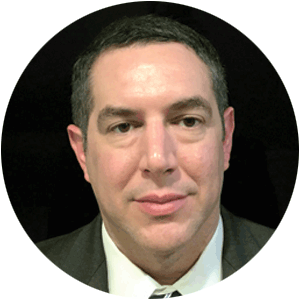 Jonathan Baden, MS, Director, Pharmacodiagnostics, Translational Medicine, Bristol-Myers Squibb
Jonathan Baden, MS, Director, Pharmacodiagnostics, Translational Medicine, Bristol-Myers Squibb
With emerging Immuno-Oncology (I-O) biomarker research, tumor mutation burden (TMB) has shown promise in identifying patients likely to respond to I-O therapy. Historically, TMB has been assessed by next-generation sequencing using solid tissue biopsy samples. However, less invasive methods developed are increasing the clinical applicability of blood samples for TMB evaluation. This discussion will center around use of blood samples to potentially complement solid tissue assessment of TMB biomarker status.
2:20 Challenges and Opportunities of ctDNA Plasma Assays
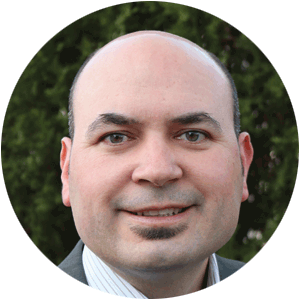 Jonathan Beer, MBA, Director, Lead of Disruptive Technologies, Novartis Oncology
Jonathan Beer, MBA, Director, Lead of Disruptive Technologies, Novartis Oncology
Liquid biopsies are a fundamental component of delivering on the promise of precision medicine to deliver the right drug at the right dose to the right patient at the right time. Currently there are 29 FDA approved CDx assays intended for use with FFPE but only one intended for use with ctDNA isolated from plasma. Novartis will discuss why there are so few ctDNA plasma CDx assays, challenges unique to plasma-based assays and experiences from Novartis breast cancer clinical trials.
2:50 Accelerating Biomarker Validation for Mid and Small Size Dx Companies Through a Risk-Benefit Sharing Model
Vanessa Tumilasci, PhD, Commercial Director, Trans-Hit Bio
Many biomarkers are discovered each year by small and mid-size companies as well as by academic scientists, however the process of fully validating these biomarkers is often challenging. Trans-Hit Bio will present a new business model (the BioTrust) for accelerating the development and validation of biomarkers.
3:05 Current and Future Role of Liquid Biopsy Tools in Immuno-Oncology
 Charles Mathews, Principal, ClearView Healthcare Partners
Charles Mathews, Principal, ClearView Healthcare Partners
In this session we will explore the changing landscape of immunotherapy diagnostics. After briefly reviewing the different diagnostic methods in current use and those in development, we will explore the potential for single versus multiple modality testing, capturing value through proprietary patient selection and monitoring, and the commercialization challenges.
3:20 Refreshment Break in the Exhibit Hall with Poster Viewing
3:55 Chairperson’s Remarks
Caroline Popper, MD, President, Popper and Company
4:00 Champions for Change: Partnering to Deliver Value and Impact in Personalized Oncology
 Rene Castro, Senior Vice President, Biopharma Business Development, Foundation Medicine
Rene Castro, Senior Vice President, Biopharma Business Development, Foundation Medicine
This presentation will feature FMI’s perspective on drug-diagnostics co-development in immune-oncology
4:30 Current FDA Authorizations: Lessons Learned
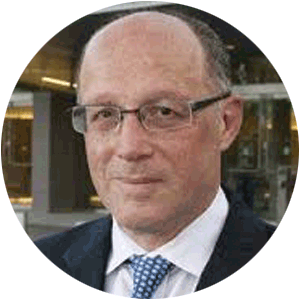 Alberto Gutierrez, PhD, Partner, NDA Partners LLC, Former Director, Office of In Vitro Diagnostics and Radiological Health, FDA
Alberto Gutierrez, PhD, Partner, NDA Partners LLC, Former Director, Office of In Vitro Diagnostics and Radiological Health, FDA
FFDA unveils streamlined path for the authorization of tumor profiling tests alongside its latest product action. What does it mean from drug developing companies?
5:00 Health Economics of Diagnostics and Immunotherapy
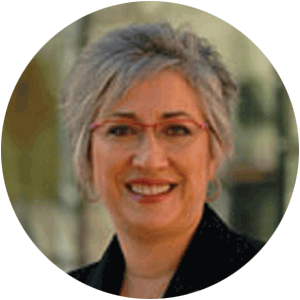 Caroline Popper, MD, President, Popper and Company
Caroline Popper, MD, President, Popper and Company
Although immunotherapy is changing the way we treat cancers, understanding why some, patients respond and not others remains a diagnostic challenge. Given the economic impact of immune checkpoint inhibitors and other immunotherapies on the healthcare system, it is key to understand the value of PD1/PD-L1 expression, Tumor Mutation Burden (TMB) and other “biomarkers” such microbiome diversity. Examples of tradeoffs between incremental quality adjusted life years and cost effectiveness will be discussed.
5:30 Networking Reception in the Exhibit Hall with Poster Viewing (Independence Ballroom)
6:30 Close of Day
THURSDAY, AUGUST 23
7:15 am Registration (Independence Foyer)
7:30 Problem Solving Break-Out Sessions with Continental Breakfast (Independence F-I)
This session features various discussion groups that are led by a moderator/s who ensures focused conversations around the key issues listed. Attendees choose to join a specific group and the small, informal setting facilitates sharing of ideas and active networking. Continental breakfast is available for all participants.
Emerging Biomarkers for Immuno-Oncology
Moderator: Jonathan Baden, Director, Pharmacodiagnostics, Translational Medicine, BMS
- Current Biomarker Landscape of Immuno-Oncology (I-O)
- Tumor mutation burden (TMB) as a potential predictive biomarker for I-O therapy
- Next-generation sequencing (NGS) testing approaches and challenges for assessing TMB
Partnering To Advance Personalized Immuno-Oncology
Moderators: Janaki Veeraraghavan, PhD, Senior Staff Fellow, FDA
Theresa LaVallee, PhD, Head of Translational Medicine, The Parker Institute for Cancer Immunotherapy
- IO personalized medicine will most likely require a set of tests using different technologies – an immunoscore – and will need an algorithm to determine likelihood to benefit – is the field ready for this?
- Would a treatment based biomarker be the most informative to determine who to continue to treat? If so, what are the key attributes?
- How much of a benefit is enough for a test to have utility in clinical practice?
- Do biomarkers- such as TMB represent the same biology in different cancer indications?
- Pathways to rationalize the definition and measurement of an emerging biomarker
- Validation elements diagnostic test for personalized I/O therapy.
8:25 Chairperson’s Remarks
Theresa LaVallee, PhD, Head of Translational Medicine, The Parker Institute for Cancer Immunotherapy
8:30 The Parker Institute’s Collaborative and Integrated Approach to Immuno-Oncology Biomarkers
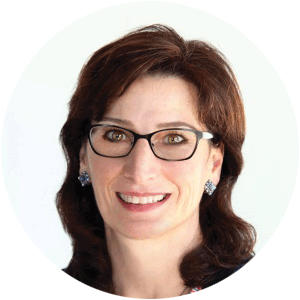 Theresa LaVallee, PhD, Head of Translational Medicine, The Parker Institute for Cancer Immunotherapy
Theresa LaVallee, PhD, Head of Translational Medicine, The Parker Institute for Cancer Immunotherapy
The Parker Institute for Cancer Immunotherapy’s mission is to accelerate the development of breakthrough immune therapies to turn cancer into a curable disease. Through collaborative efforts utilizing innovative technologies and integrating clinical and correlative datasets, Parker is advancing the understanding and utilization of immuno-oncology biomarkers.
8:50 Case Study using CancerLinQ’s Real World Data for Cancer Immunotherapy
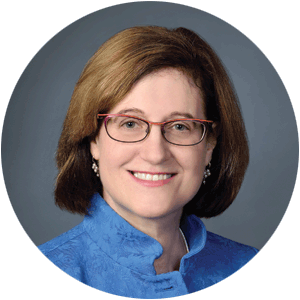 Wendy Rubinstein, MD, PhD, Deputy Medical Director, CancerLinQ, LLC, American Society of Clinical Oncology
Wendy Rubinstein, MD, PhD, Deputy Medical Director, CancerLinQ, LLC, American Society of Clinical Oncology
Informed by the National Academy of Medicine’s vision of a rapid learning health system, ASCO has created CancerLinQ, a Learning Intelligence Network for Quality. CancerLinQ aggregates and processes data from several EHR systems to extend ASCO’s portfolio of quality programs. Fit-for-purpose, de-identified real world data sets can be requested. This session will describe the CancerLinQ data asset and provide one or more use cases pertaining to immune checkpoint inhibitors.
9:10 Clinico-genomics: What Is It, and Why Do We Need It?
 Ken Carson, MD, PhD, Senior Medical Director, Flatiron Health
Ken Carson, MD, PhD, Senior Medical Director, Flatiron Health
In an era of abundant biological data, deep clinical phenotyping is crucial for deriving insights that matter to patients. The widespread adoption of Electronic Health Records (EHRs) enables access to large amounts of real-world data, however curation is necessary to construct datasets that contain research-quality clinical evidence that can then be paired with genomic data. Dr. Carson will explore insights we are able to draw from a combination of real-world clinical evidence from the patient’s EHR, matched with genomic analysis. This pairing transforms cross-sectional genomic data into a longitudinal clinico-genomic dataset capable of generating novel insights, many of which could previously be assessed only through clinical trials or patient registries.
9:30 PANEL DISCUSSION: Real World Data-Driven Biomarker Development in Immuno-Oncology
Moderator: Theresa LaVallee, PhD, Head of Translational Medicine, The Parker Institute for Cancer Immunotherapy
Panelists: Wendy Rubinstein, MD, PhD, Deputy Medical Director, CancerLinQ, LLC, American Society of Clinical Oncology
Ken Carson, MD, PhD, Senior Medical Director, Flatiron Health
10:00 Coffee Break in the Exhibit Hall with Poster Viewing (Independence Ballroom)
11:15 am Chairperson’s Remarks
11:20 am - 12:00 pm TECHNOLOGY PANEL: Disruptive Technologies in Lab Medicine
Moderator: Gregory J. Tsongalis, PhD, HCLD, CC, Professor, Pathology; Director, Laboratory for Clinical Genomics and Advanced Technology (CGAT), Department of Pathology and Laboratory Medicine, Dartmouth Hitchcock Medical Center and The Audrey and Theodor Geisel School of Medicine at Dartmouth
- What is appropriate test utilization?
- How do you ensure both user and patient safety?
- How are tests implemented in the clinical setting?
- How do they get regulated?
- How do results get reported?
- How do you enforce quality control in implementation?
- How does it impact emerging applications such as liquid biopsies, infectious disease outbreaks, and POC diagnostics?
Panelists:
 Rakesh Nagarajan, MD, PhD, Chief Biomedical Informatics Officer, PierianDx
Rakesh Nagarajan, MD, PhD, Chief Biomedical Informatics Officer, PierianDx
 Greg Richard, Chief Commercial Officer, Interpace Diagnostics
Greg Richard, Chief Commercial Officer, Interpace Diagnostics
 Crystal R. Icenhour, PhD, CEO, Aperiomics, Inc.
Crystal R. Icenhour, PhD, CEO, Aperiomics, Inc.
Additional Panelists to be Announced
12:00 - 12:45 pm Changing Approaches to Sustainable Funding in Diagnostics
Moderator: Bruce Quinn, MD, PhD, Principal, Bruce Quinn Associates
Today, many innovators in the diagnostics industry struggle for funding, and yet news of large scale acquisitions or large (over $30M) funding rounds pops up regularly. How can innovators better understand the changing dynamics of the funding environment to succeed? How can investors know if they are getting exposed to the potentially best investments? Whether government or private, what drives the final difficult decisions and how can companies raise their chances of success? This session features leaders from several different channels of funding for innovators, including the NIH, other federal programs, and corporate and traditional venture investors.
Panelists:
Alex DeWinter, PhD, Managing Director, GE Ventures
Tyler Merkeley, BARDA’s CARB-X Program Manager, Health Scientist, Division of CBRN Countermeasures, BARDA
Todd Haim, PhD, Program Director, National Cancer Institute SBIR Development Center
Wouter Meuleman, PhD, Director, Venture Investments, Illumina Ventures
David Sans, PhD, MBA, F.A.A.R.M., Managing Director, Healthcare Capital Markets, THINK EQUITY (A Division of Fordham Financial Mgmt., Inc.)
12:45 pm Luncheon Presentation (Sponsorship Opportunity Available) or Enjoy Lunch on Your Own
1:15 Close of Companion and Complementary Diagnostics in Immuno-Oncology